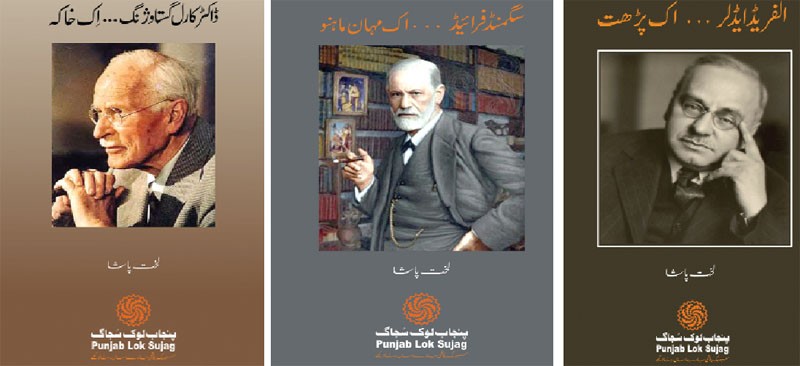
Pashi’s translations are the first of a kind and a fruit of earnest hard work

Lakhat Pasha, the leftist leader of Punjab’s anti-Zia movement, has returned from his recluse - to publish three books of translations in a row.
He founded the Punjabi Parchar Committee in early1980s and Punjab Lok Rehas in mid 1980s. Punjabi Parchar Committee is known for holding the first ever Punjabi School during 1984-1985, organising seminars and study circles for the dissemination of Punjabi language and literature. The Facebook page of Punjab Lok Rehas says: ‘Punjab Lok Rahas, working since 1986, has staged/published more than 80 theatre plays and skits and over 1,000 performances.
Pasha, the mentor and an inspiration for the youth in the 1980s, staged phenomenal plays like, Anhērē dā pandh (The journey of darkness: 1986, written by the Punjabi Parchar committee) Dharōh (Exploitation: written by Pasha himself), Takhat Lahaur, Ik rāt rāvī dī (The Seat of Lahore and a Ravi Night: written by Najm Hussain Syed) among many others, which were presented all over the country. In 1986, Rehas also played Baṇadīvāṇ (prisoner) written by Fakhar Zaman and adapted for stage by Pasha. Since theatre managed in public sector were not available to Rehas, the plays were staged at privately-owned venues including some residences. Baṇadīvāṇ was first staged at Akhter Qizilbash’s residence in Garden Town. When Benazir Bhutto returned to Pakistan from her exile, it was rumoured that she might show up to watch a performance. She never did, but a host of political leaders including Jam Saqi and Wali Khan did.
Punjab Lok Rahas stopped theatre performances a few years ago. Very little information about it is available online.
While it was active, it was one of the best organised, and influential cultural organisations in the Punjab. It is genrally believed that no other leftist leader or intellectual has mentored so many young artists as Pasha. Very few of them stayed on. Some of his students from the Punjabi class excelled in other careers. They included Musaddiq Sanwal (painter, journalist), Adnan Qadir, (academic) Sabir Nazar, (painter, journalist).
Why have the Punjabi Parchar Committee and Lok Rehas been forgotten? Where are all the comrades? Who is responsible for this dismal state of affairs? Why were the organisations created with so much commitment lost? These are important questions to which society must come up with answers.
Pasha, fondly known by his comrades as Pashi had his training in the 1960s student movement. He worked in railway unions with Mubarik Haider. Pashi was left disillusioned, like many others in his generation. Bhutto they believed, had betrayed the people in not fulfilling his promise to bring a socialist economy. He joined the Punjab Lok Party in the late ’70s. He also fell in love with Punjabi language and never wavered. Pashi would often talk about his books which were never published. He once told a friend that he had translated Jean-Paul Sartre’s Being and Nothingness.
He has finally published three works of translation: Sigmund Freud: Ik Mahān Māhanō (A great Human being), Dr Carl: Gustav Jung: Ik ḵẖākā (A Sketch) and Alfred Adler: Ik Paṛhat (A Reading).
Half of Sigmund Freud: Ik Mahān Māhanō is about Freud’s life, a narrative that could have been cut short. Freud’s theories about consciousness, the unconscious and sub-conscious, id, ego and super ego, Oedipus complex, Electra complex, libido and repression have been discussed briefly. A chapter is dedicated to dreams. The content is the subject of Freud’s celebrated book, The Interpretions of Dreams. A chapter is dedicated to the analysis of psyche.
Dr Carl: Gustav Jung: Ik ḵẖākā is a good introduction to Jung and his theories. The concepts elaborated in the book include personal and collective unconscious and its patterns; ‘signs’, ‘motifs’, ‘archetypes’, ‘dreams’, ‘dreams’ analysis’ and ‘psyche’. There is a chapter about ‘personalities’ where several concepts like ‘persona’, ‘shadow’, ‘animus and anima’, ‘sense’, ‘thinking’, ‘perception’, ‘intuition’ and finally ‘introvert’ and ‘extrovert’ have been expounded.
In Alfred Adler: Ik Paṛhat, the language is smooth and less spasmodic. We are given a bird’s eye view of the psychologist’s ideas and engagements, whose most discussed concepts were ‘superiority and inferiority complex’, ‘physical and psychological disabilities’ and some of the theories relating to ‘sex and personality’.
The books, published by Punjab Lok Sujag and distributed by Sanjh publications, are the first of their kind in Punjabi. There are hardly any books on psychology, philosophy or other sciences in the Punjabi language. Pashi has worked hard to translate the terminology. A glossary providing English equivalents of unfamiliar Punjabi words would have been great help. It appears that the books were hurriedly published and that proper attention was not given to spellings. The late Asif Khan, of Punjabi Adabi Board and Najm Hussain Syed and Sangat, have translated/coined a lot of terminology. This is not to take away anything from Pashi’s books which are a fruit of hard work and great commitment.